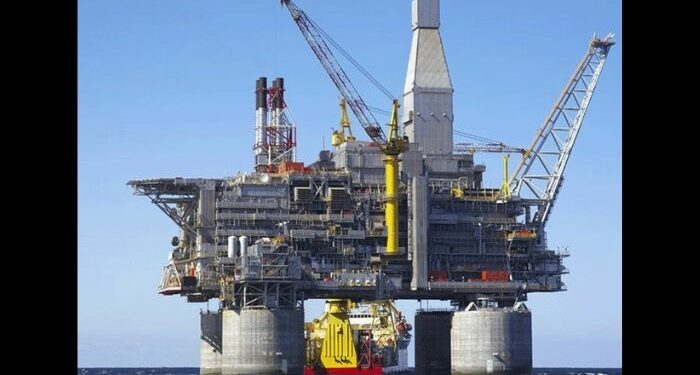Nigeria’s oil sector reforms fail to gain traction
The Petroleum Industry Act (PIA) has been in effect for over a year, but other than a name change by regulatory agencies, new fiscal rules for oil firms, and the rebranding of the state-owned oil company, not much has changed.
The festive season has been marred by long fuel queues and scarcity of aviation fuel disrupting the travel plans of millions. Rather than becoming profitable after going commercial, the Nigerian National Petroleum Company Limited (NNPC) is flailing.
An oil law that took over 20 years before it could become passed was meant to attract investors to Nigeria’s troubled oil-rich Niger Delta, but more operators are scrambling to leave onshore and shallow-water fields.
The law provides for a deregulated downstream sector where market forces determine the pump prices of petroleum products, but officials of the Nigerian Midstream and Downstream Petroleum Regulatory Authority (NMDPRA) still besiege petrol stations to enforce compliance with government pricing.
A recent report by the World Bank provides a fitting summary of Nigeria’s oil sector in 2022, the year the reforms were expected to kick in. It said the reforms had failed.
“The sector’s production has declined consistently over the past two decades due to inefficiencies and the accumulation of large payment arrears for joint-venture cash calls in the 2010s,” the report said.
Due to uncertainties about future regulatory and fiscal frameworks, Nigeria has not held a licensing round for oil blocks other than marginal fields since 2007. Even the marginal field saw forced merger of bidders because many lacked technical and financial competence.
New production has been limited to drilling new wells in existing licence areas, the report said, and in 2021, less than one-fifth of oil and gas lifted by the NNPC was eventually transferred to the Federation Account — petrol subsidy accounted for 42 percent of oil and gas lifted by the NNPC, by far the largest component.
In 2022, it became a real possibility that Nigeria could start borrowing to continue financing the petrol subsidy, having spent virtually all it makes from crude sales to cover the cost of subsidising the product.
The Nigerian oil and gas sector is troubled, comprising an upstream segment, with several companies involved in the exploration and production of oil and gas; a midstream segment, with companies that store, treat, and transport oil and gas; and a downstream segment, which includes refiners, bottling plants for liquefied petroleum gas, filling stations, and trucking companies.
According to the World Bank report, since 2000, the Oil and Gas Sector Reform Implementation Committee has attempted to draft and pass a law that would effectively reform the oil and gas sector, specifically to allow the sector to become profitable and attract more investments, and to reduce the fiscal burden of the petrol subsidy.
After more than two decades in the making, the PIA was enacted on August 16, 2021, and it aimed to reform the country’s oil and gas sector.
It transformed the NNPC into a limited liability quasi-commercial enterprise (with shares held by the ministries of petroleum resources and finance) and transferred many powers of the ministry of petroleum resources to two new regulators: the Nigerian Upstream Petroleum Regulatory Commission and the NMDPRA.
The PIA also introduced a new fiscal framework for the oil sector, aimed at increasing oil profits at the expense of taxes.
The results of the reforms have been a sham. Weeks after passing the Act, President Muhammadu Buhari constituted an implementation team, which announced a one-year timeframe. The one year has elapsed, and reforms including subsidy removal have been kicked to June 2023.
Oil production remains below the average level of the last decade due to high costs, high security risks, the inability of the federation to pay fully and on time for its share of costs in joint-venture operations, and, in the past, uncertainties about the future fiscal terms, now set out in the PIA, the World Bank said.
Since November 2021, Nigeria has failed to meet its OPEC+ production quota, according to BusinessDay tracking of production data.
“Despite the passage of the PIA, confusion remains regarding the management and governance of the oil sector. Multiple entities are acting as fiscal agents, with the commission [NUPRC] collecting upstream petroleum revenues, and the Federal Inland Revenue Service continuing to collect downstream revenues,” the multilateral lender said.
“The PIA does not explicitly eliminate in-kind payments and leaves the discretion to the commission. In contrast to internationally accepted best practice, the PIA excludes all ministers and vests in the commission the exclusive authority to decide how fiscal payments are to be made or when and how to conduct licensing rounds.”
While 2022 saw some remarkable feats by local oil companies including the construction of GIL Automations’ cable tray and switchgear factory in Lagos, many local oil service companies suffered due to paucity of projects.
Nigeria LNG’s Train 7, which secured financing in late 2021, found it difficult to get enough feedstock to run its other plants and meet orders in Europe, which is battling gas shortages due to Russia’s invasion of Ukraine. Oil producers whose associated gas is used were battling to rein in oil thieves.








